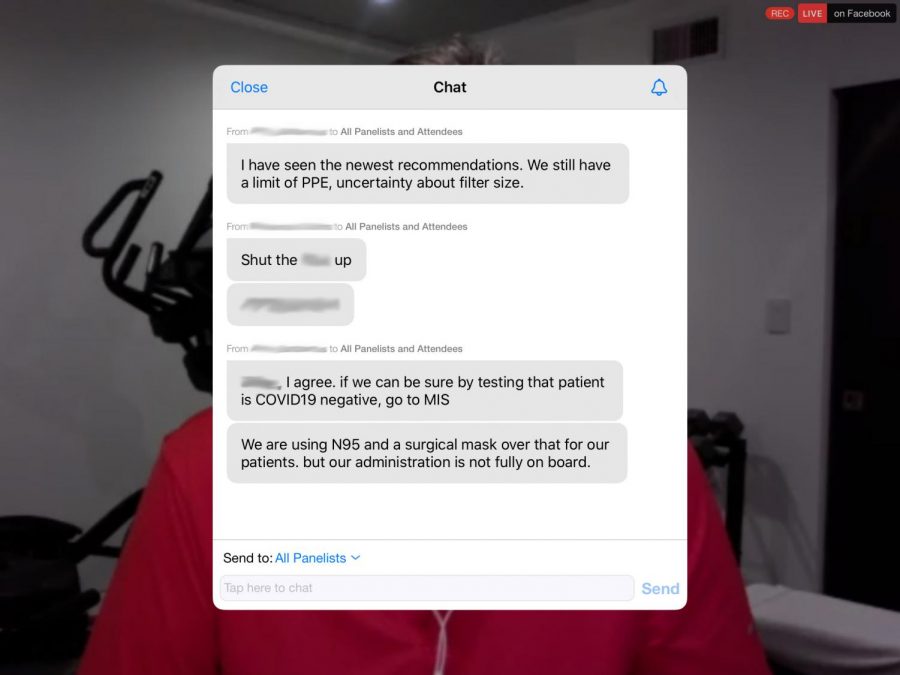Zoom Classes Prompt Questions on Cybersecurity
April 7, 2020
In the rapid shift from face-to-face to online classes, many colleges and universities are utilizing Zoom Video Communications to convene for lectures and clubs — including Fordham. Problems have now arisen with the platform, such as data sharing with third-party companies and “Zoombombing,” where attendees of public meetings are able to broadcast inappropriate content such as pornography.
The increase in concerns over Zoom privacy follows the company’s dramatic takeover of digital communication, with its stock value doubling since the beginning of 2020, and the service used daily by over 200 million people.
In a message to Zoom users on April 1, Founder and CEO Eric Yaun confirmed the videoconferencing service is working with over 90,000 schools around the world to deliver remote education.
On April 4, Department of Education Chancellor Richard Carranza banned the use of Zoom in New York City schools due to “security and privacy” concerns, according to Fast Company. Instead, Carranza is opting to use Microsoft Teams, as it is compliant with the Family Educational Rights and Privacy Act (FERPA).
In an interview with CNN Business, Yaun said they are “still in the process” of working with the New York City Board of Education by further enforcing security settings and lowering the risk of Zoombombing.
“We recognize that we have fallen short of the community’s – and our own – privacy and security expectations. For that, I am deeply sorry,” Yaun said in his April 1 address. “We did not design the product with the foresight that, in a matter of weeks, every person in the world would suddenly be working, studying, and socializing from home.”
Matt Chen, Fordham College at Lincoln Center ’22 and a computer science major, said that the move to online classes via Zoom has put students and faculty alike into a “difficult and frustrating” situation.
“We already live in a surveillance state and our private information is already exposed,” Chen said. “It is hard to come by somebody our age who has their information truly ‘secure.’”
According to Chen, he has professors who are choosing to not make their class sessions public to combat Zoombombing; instead, they are admitting each student individually into private conferences. Chen said he has spent up to 15 minutes waiting to be admitted into a Zoom lecture for this to happen.
Shaya Phillips, interim chief information officer at Fordham; and Jason Benedict, associate vice president of information security for the university, spoke to The Observer about student data earlier in the semester prior to the pandemic. According to Benedict, there are three types of data his office uses: public, sensitive and confidential.
“All of our faculty have end-point protection, which you might know as anti-virus. We also protect against unintended sharing of student data by technologies that make sure that student data isn’t inadvertently shared with folks outside of Fordham,” Benedict said.
In addition to student concerns over data protection, the online semester brings forth questions about online free speech, as the Foundation for Individual Rights in Education (FIRE) named Fordham its April “speech code of the month.”
FIRE cites that Fordham’s Information Technology (IT) usage policy cites “any IT Resource, including email or other communication system to intimidate, insult, embarrass, or harass others” is prohibited.
FIRE argues that it is easy for a student to claim to be insulted or embarrassed over online learning, as classes are completely conducted on Zoom.
To try to combat these concerns, Zoom has published an abundance of resources, including an address on Zoombombing, confirmation that they have removed the software development kit that sent information to Facebook and guides for educators on setting up their classroom.
Yaun also promised to host a weekly webinar on privacy and security updates on zoom.













